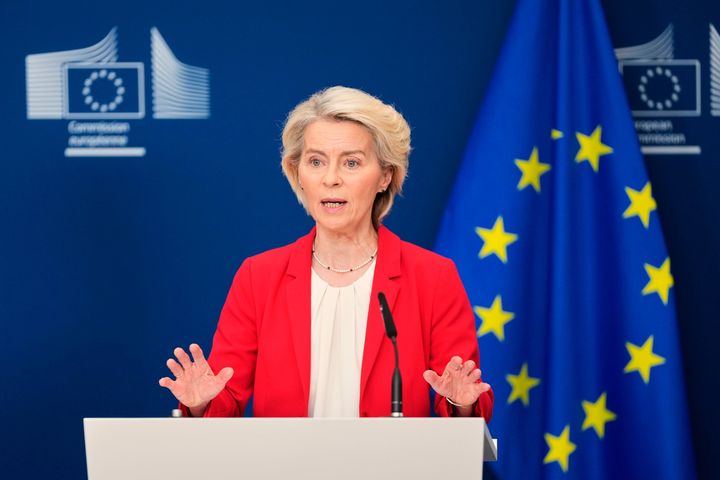
EU ministers back goal to cut emissions by 90pc by 2040
Deal lets countries buy more foreign CO2 credits to meet target
Agreement also includes delay to EU’s new carbon market
EU rushing to finish before COP30 climate summit on Thursday
After negotiating late into Tuesday night, climate ministers from European Union countries approved in a public vote a compromise to cut emissions 90pc by 2040, from 1990 levels, but with flexibilities to weaken this aim.
The weakened target would let countries buy foreign carbon credits to cover up to 5pc of the 90pc emissions-cutting goal. That would effectively weaken to 85pc the emissions cuts required from European industries, and pay foreign countries to cut emissions on Europe’s behalf to make up the rest.
The EU also agreed to consider the option, in future, to use international carbon credits to meet a further 5pc of the 2040 emissions reductions – potentially shaving another 5pc off the domestic target.
Additionally, countries agreed a 2035 target to cut emissions in a range of 66.25-72.5pc. The U.N. asked all governments worldwide to submit 2035 climate plans before the COP30 climate summit opens on Thursday.
“Setting a climate target is not just picking a number, it is a political decision with far-reaching consequences for the continent,” said Danish climate minister Lars Aagaard.
European Commission president Ursula von der Leyen. Photo: AP
Today’s News in 90 Seconds – Wednesday, November 5
“Therefore, we have also worked to provide comfort that it can be reached in a way that preserves competitiveness, social balance and security.”
Reuters previously reported the details of the final deal.
In a further effort to win over sceptical countries, the EU also agreed to weaken other politically sensitive climate policies – including by delaying the launch of an upcoming EU carbon market by one year, to 2028.
Still, a handful of countries including Poland, Slovakia and Hungary opposed the 2040 climate target on the grounds it would hit industries’ competitiveness. Their opposition was not enough to block the agreement, which needed backing from at least 15 of 27 member states.
The deal meant the EU will not go empty-handed to COP30, where European Commission President Ursula von der Leyen will meet other world leaders on November 6.
The COP30 talks will test the will of major economies to keep fighting climate change in the face of opposition from U.S. President Donald Trump. The EU has prided itself on leading international efforts to curb climate change at past COPs.
But the dilution of the target reflects a backlash against Europe’s ambitious climate agenda, from industries and some governments sceptical that it can afford the measures alongside defence and industrial priorities.
The European Commission had originally proposed a 90pc emissions-cutting target, with a maximum 3pc share of carbon credits. The target was designed to keep the EU on track between its legally-binding goals to cut net emissions by 55pc by 2030, and reach net zero emissions by 2050.
The EU’s independent climate science advisers said a 90pc domestic goal would have been in line with science. But they had advised against buying foreign CO2 credits, which they said would divert much-needed investments away from European industries.
European Commission president Ursula von der Leyen. Photo: AP
Today’s News in 90 Seconds – Wednesday, November 5
Countries including France and Portugal had demanded the 5pc carbon credits flexibility, while others including Poland and Italy sought 10pc. Spain and the Netherlands were among those opposed to softening the target further, EU diplomats told Reuters.
“We don’t want to destroy the economy. We don’t want to destroy the climate. We want to save both at the same time,” Polish Deputy Climate Minister Krzysztof Bolesta said on Tuesday.
Poland, Italy, the Czech Republic and others opposed the original 90pc target as too restrictive for domestic industries struggling with high energy costs, cheaper Chinese imports and U.S. tariffs.
Others, including the Netherlands, Spain and Sweden, cited worsening extreme weather and the need to catch up with China in manufacturing green technologies as reasons for ambitious goals.





